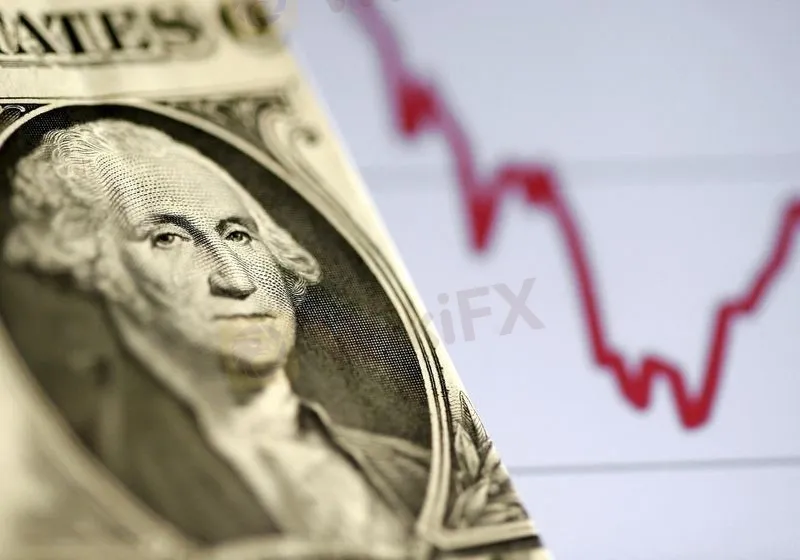WTI RISES AS US CRUDE OIL EXPORTS INCREASE AMIDST OPEC+ CUTS, YET ECONOMIC HEADWINDS LOOM
Abstract:Western Texas Intermediate (WTI), the US crude oil benchmark, rose on Wednesday after Tuesday’s holiday in the United States (US), keeping prices almost unchanged due to thin volumes amidst US traders’ absence. Hence, WTI is trading at $71.86 per barrel, up by 1.28%, after hitting a daily low of $70.40.

• WTI surged 1.28%, buoyed by high US crude exports and OPEC+s commitment to output cuts.
• Extension of production cuts into August is expected to tighten the oil market further, analysts report.
• Potential rate hikes by the Federal Reserve and global economic slowdown threaten the upward momentum.
Western Texas Intermediate (WTI), the US crude oil benchmark, rose on Wednesday after Tuesday‘s holiday in the United States (US), keeping prices almost unchanged due to thin volumes amidst US traders’ absence. Hence, WTI is trading at $71.86 per barrel, up by 1.28%, after hitting a daily low of $70.40.
WTI SURGES ON SUPPLY TIGHTENING MEASURES, BUT MACRO-ECONOMIC FACTORS CAST A SHADOW
Government data revealed that US crude shipments for the week ending June 23 finished at or near record highs with a daily volume of 5.338 million barrels. The week before was 4.543 million, being the June 16 week, while for the week ended June 9, exports were at 3.27 million daily. Therefore, WTI exports have doubled over the last three weeks.
That keeps WTI underpinned, alongside crude oil output cuts by Saudi Arabia and Russia, which extended its 1 million and 500,000 barrels per day cut to August.
Analysts quoted by Reporters, “The July voluntary cuts and the extension into August should considerably tighten the oil market, but investors will stay on the sidelines until oil inventories show substantial draws.”
The Organization of Petroleum Exporting Countries and its allies, known as OPEC+, gathered at an industry event on Wednesday and commented the cartel will keep its efforts to support a “stable and balanced oil market.”
In the meantime, a global economic slowdown, seen after the release of the Manufacturing and Services PMI, could cap WTI prices. That and higher interest rates in the United States (US) can keep US crude oil prices meandering around the $70.00 per barrel price after Junes Federal Reserve (Fed) meetings showed divisions amongst policy markets pausing on increasing interest rates. It should be noted that a July rate hike is almost certainly, which could boost the greenback, a headwind for US Dollar (USD) denominated commodities.

Read more

CySEC reaches €20k settlement with ZFN EUROPE
According to report, the Cyprus Securities and Exchange Commission (CySEC) announced today that it has entered into a settlement agreement with ZFN EUROPE Ltd for the amount of €20,000. This settlement resolves a regulatory inquiry into ZFN Europe’s compliance with Cyprus’s Investment Services and Activities and Regulated Markets Law of 2017, as amended.

Prop Trading Firms vs. CFD Brokers: Who’s Winning the Retail Trading Race?
In recent years, a new breed of retailer-focused trading firms has emerged: proprietary (prop) trading outfits that recruit individual traders to trade the firm’s capital under structured rules. Boasting low entry costs, clear risk parameters, and profit-sharing incentives, these prop firms are rapidly winning over retail traders, many of whom previously traded Contracts for Difference (CFDs) with established online brokers. As prop trading revenues accelerate, a key question arises: Are CFD brokers losing business to prop firms?

Another ‘Tan Sri’ Targeted, RM347 Million in Assets Seized in MBI Scam
Malaysia’s police are stepping up their investigation into the MBI investment scam, a multi-billion ringgit fraud that has dragged on for nearly a decade. The Royal Malaysian Police (PDRM) is now planning to arrest another prominent figure with the title ‘Tan Sri’, following recent arrests and major asset seizures.

Tradu Joins TradingView for Seamless CFD and Forex Trading
Tradu, a global trading platform, integrates with TradingView for seamless CFD and forex trading, offering transparency, tight spreads, and fast execution.
WikiFX Broker
Latest News
Love, Investment & Lies: Online Date Turned into a RM103,000 Scam
Broker’s Promise Turns to Loss – Funds Disappear, No Compensation!
Broker Took 10% of User's Profits – New Way to Swindle You? Beware!
Pi Network: Scam Allegations Spark Heated Debate
Broker Comparsion: FXTM vs AvaTrade
Account Deleted, Funds Gone: A New Broker Tactic to Beware Of?
El Salvador and U.S. Launch Cross-Border Crypto Regulatory Sandbox
The Instagram Promise That Stole RM33,000
Kraken Partners with Alpaca to Offer U.S. Stocks and Crypto
Before You Trade the Next Big Thing, Remember the Dot-Com Collapse
Rate Calc

